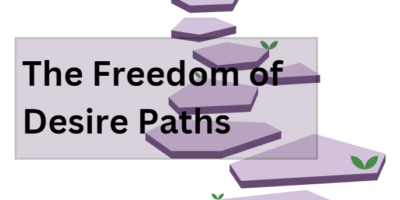When we look at stress management, it’s important to notice that a lot of seemingly small and insignificant issues can balloon into overwhelming matters that suddenly start to eat up a lot of time, energy, and effort. Most of us have probably heard more than one talk from professionals that teach us how to deal with really big stressors, but in this article, let’s focus on a preventative approach to stress management. A great way to deal with stress is tackling it before it actually happens. To do this, we need to focus on one of the most fundamental factors of stress, which is “decisions.” No, I’m not going to make you make a computational decision making matrix from your PD courses. However, let’s go over some ways you can work with decisions to make them more manageable.
1. Decisions can make a day stressful. On the one hand, decisions can be empowering because they give us a sense of control. On the other hand, having an excessively large number of decisions can be draining to deal with. Between debating about co-op jobs, figuring out which party you should sacrifice study (or sleep) for, and trying to determine how much time to split between those two assignments due tomorrow, it’s easy to see how decisions can take up a lot of time and energy. Thus, if you find yourself overwhelmed by decisions, try actively reducing the number of decisions you have to make. You can do this either by making the decision (with intent to follow through), by avoiding situations that have a lot of choices, or by accepting that you aren’t going to make a decision.
2. You are allowed to say “I’m not going to make a decision.” Following up with point one, a good way to deal with the stress of decisions it to accept and understand that you don’t have to make a decision. Are your parents asking if you’d rather drive up or have them come down? If the choice really doesn’t bother you, then don’t feel pressured into making a decision. Let someone else decide. Saying “I don’t care” or “it doesn’t bother me” can be very liberating. Alternatively, if you also have to make a major decision, such as debating between two design project ideas, it’s also acceptable to put off a decision for a few days. This might just be a fancy form of procrastination, but spreading out your stress over a longer period can also make it more manageable.
3. Increasing the number of options won’t necessarily make the decision easier. In an interesting TED Talk, Barry Schwartz talked about the “Paradox of Choice”. Many stores, services, and institutions seem to make this a rule — to satisfy the customer, give them anything they want. However, being presented with everything you can possibly have actually can make you feel paralyzed, not liberated. Thus, if you’re feeling overwhelmed by the sheer number of options, instead of feeling like you have to consider each and every one carefully, try going for the bare-bones version. For instance, don’t consider every possible arts course for your CSE; stick to the ones you’re genuinely interested in or might do well at. Scratch off the options that are unnecessary, superfluous, or simply just seem nice, and focus on the ones that are important and meaningful.
4. If you only see two options, don’t rush into a decision. The flip side of number four is that some situations seem to railroad you down either one of two paths, don’t force yourself to pick one right away. A lot of decisions may seem black-and-white (should you stay or should you break-up?) but in reality, most decisions lie on a gradient, and by focusing so intently on the two that are the most obvious, you might be missing out on the plethora of choices in between. And if you’re absolutely convinced that there are no other choices, talk to someone about it first. A friend, an advisor, or a professional might be able to see things that you can’t.
5. Finally, once you make a decision, stick to it. You can do this by writing it down, telling a friend, or just having lots of self-control and commanding yourself to follow through. One of the biggest ways to waste energy is to tell yourself you’ve made a decision and then reconsider. In fact, there are many studies that show that such a tactic can actually make people unhappier, since if you’ve reconsidered once, chances are that you’ll do it again. Thus, it would be more worth your time to spend that extra hour or two mulling over the decision — but once you’ve decided, stick to it.
If these tips seem deceptively simple, be warned: putting them into practice can be much harder. Nevertheless, don’t get discouraged if you find yourself spiraling into a web of too many decisions. Recognizing some of our cognitive biases is a great first step, and it’s only with practice that we can learn to avoid some of these decision-making pitfalls, and try to lead a happier university life.




Leave a Reply